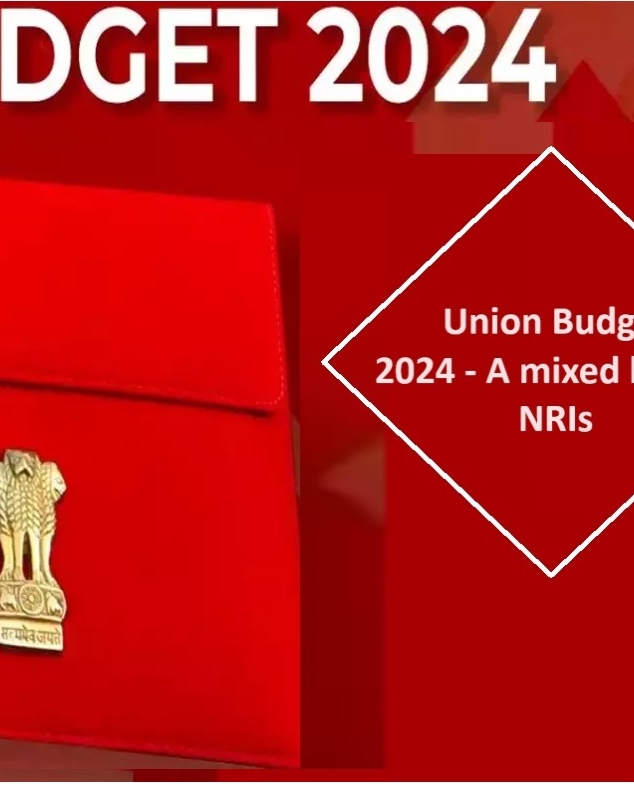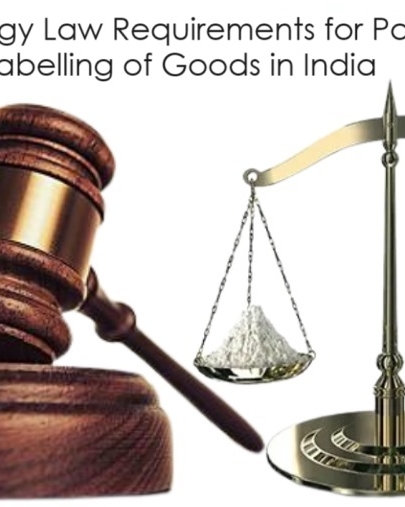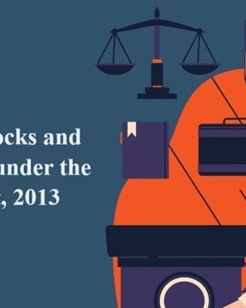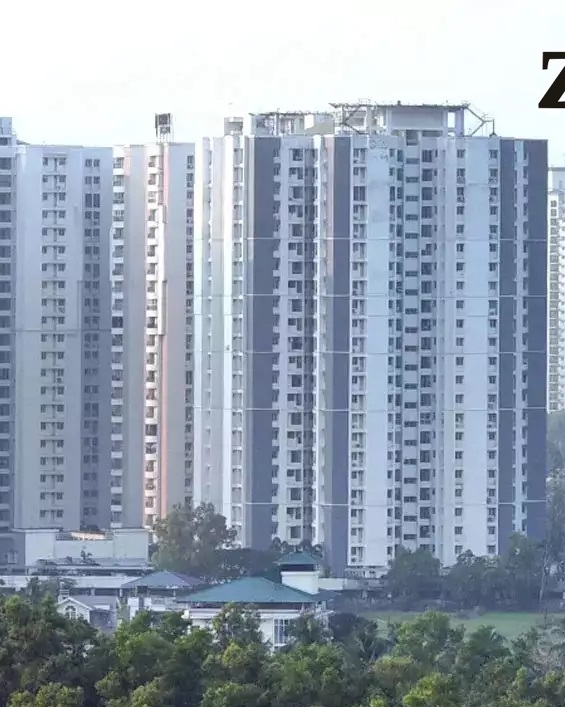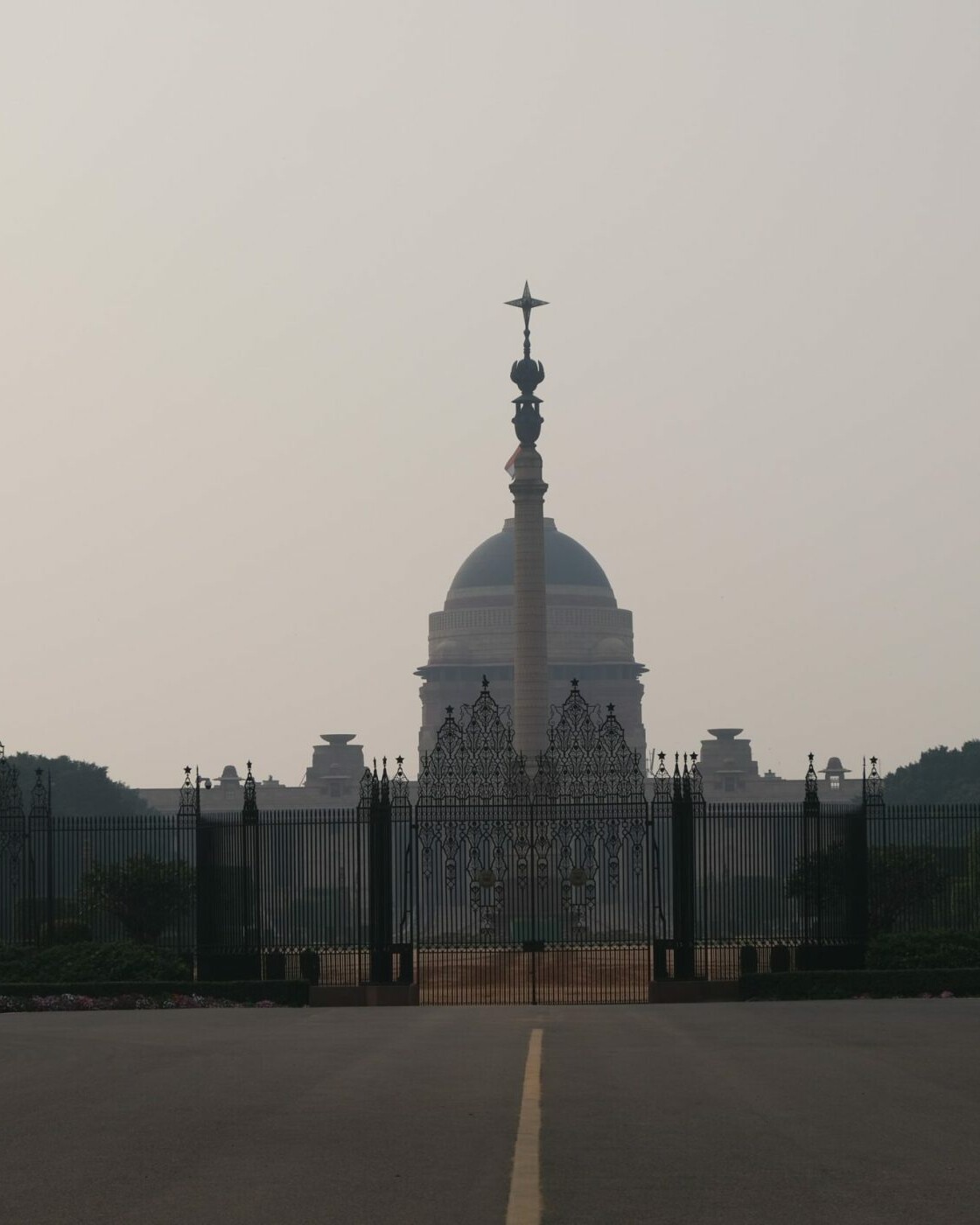Highlights:
Corporate Brief
- Report of the Committee on Digital Competition Law dated 12.03.2024 issued by MCA in regard to Draft Digital Competition Bill, 2024.
- Circular No. 2023-24/131 dated 06.03.2024 issued by the Reserve Bank of India in regard to Arrangements with Card Networks for the issue of Credit Cards.
- Circular No. 2023-24/132 dated 07.03.2024 issued by the Reserve Bank of India in regard to the Amendment to the Master Direction – Credit Card and Debit Card – Issuance and Conduct Directions, 2022.
- Notification dated 21.03.2024 issued the Reserve Bank of India in regard to the Omnibus Framework for recognising Self-Regulatory Organisations (SROs) for Regulated Entities (REs) of the Reserve Bank of India.
- Circular No. 2023-24/140 dated 27.03.2024 issued by the Reserve Bank of India in regard to Investments in Alternative Investment Funds (AIFs).
- Notification No. 2024/166 dated 08.03.2024 issued by SEBI in regard to Securities and Exchange Board of India (Real Estate Investment Trusts) (Amendments) Regulations, 2024.
- Notification No. 2024/167 dated 08.03.2024 issued by SEBI in regard to Securities and Exchange Board of India (Index Providers) Regulations, 2024.
- Circular No. 2024/19 dated 20.03.2024 issued by SEBI in regard to Amending the Circular that mandates additional disclosures by FPIs that fulfil certain objective criteria.
RERA Brief
- Office Order dated 23.03.2024 issued by Uttar Pradesh Real Estate Regulatory Authority (“P. RERA”) for uploading documents in the correct format in the complaint form by complainants and respondents.
- Direction dated 07.03.2024 issued by the Odisha Real Estate Regulatory Authority (“Odisha RERA”) on submission of self-declaration at the time of registration of a real estate project.
- Discussion paper dated 15.03.2024 issued by the Maharashtra Real Estate Regulatory Authority (“MAHA RERA”) in the matter of maintenance and operation of Bank Accounts of registered real estate projects.
- Notification dated 14.03.2024 issued by the Rajasthan Real Estate Regulatory Authority (“Rajasthan RERA”) notifying the Rajasthan Real Estate Regulatory Authority Regulations 2024.
NCLT Brief
- Whether payments undertaken by a third party for assisting the corporate debtor for meeting working capital requirement amounts to “financial debt” or “operational debt” under IBC?
Litigation Brief
- No Easement if an alternative way exists
- Supreme Court cites “Miscarriage of Justice” to use its Curative Jurisdiction to set aside an Arbitral Award.
Corporate Brief
Report of the Committee on Digital Competition Law dated 12.03.2024 issued by MCA in regard to Draft Bill on Digital Competition, 2024.
- The Ministry of Corporate Affairs (MCA) vide press release dated 12.03.2024, has released the draft report of the Committee on Digital Competition Law (CDCL) and a draft bill on Digital Competition Law (Draft Bill). The Draft Bill is a part of the report that CDCL submitted to the MCA on 27.02.2024.
- The Draft Bill introduces an ex-ante regulation of enterprises with a significant presence in the digital market, known as Systemically Significant Digital Enterprises, in the provision of the specified digital services, known as Core Digital Services, in India. Along with regulating such enterprises, the Draft Bill also regulates group entities that may be directly or indirectly involved in the provision of such Core Digital Services.
- The Draft Bill, inter alia, prohibits the Systemically Significant Digital Enterprises, from engaging in self-preferencing, restricting third-party apps, imposing anti-steering policies, misusing the data of business users, and bundling products and services.
- The MCA has invited public comments to the report and the Draft Bill by 15.04.2024.
Circular No. 2023-24/131 dated 06.03.2024 issued by the Reserve Bank of India in regard to Arrangements with Card Networks for the issue of Credit Cards.
- The Reserve Bank of India vide its circular dated 06.03.2024, prohibited all card issuers from entering into agreements that restrict them from using services of other card networks.
- It mandates card issuers to offer eligible customers the option to choose from multiple card networks at the time of issuance or renewal of credit cards.
- This provision is not applicable to credit card issuers with number of active cards issued by them being 10 lakh cards or less. The circular specifies that issuers operating their own authorized card network are exempt from these directives.
- The provisions of this circular will become effective six months from the date of issuance of the circular.
Circular No. 2023-24/132 dated 07.03.2024 issued by the Reserve Bank of India in regard to the Amendment to the Master Direction – Credit Card and Debit Card – Issuance and Conduct Directions, 2022.
- The Reserve Bank of India vide its circular dated 07.03.2024, amended the Master Direction on Credit Card and Debit Card – Issuance and Conduct Directions, 2022, which inter alia includes as under:
- The amendment requires the card issuers to put in place effective mechanisms to monitor end use of funds.
- The amendment specifies that a penalty of ₹500 shall be levied on a per calendar day basis, regardless of whether it is a working day or not, on the card issuers who fail to complete the card closure process within seven working days.
- While no card-issuer shall dispatch a card to a customer unsolicited, the amendment provides cardholders with the option to opt-out from/ decline the renewal of an existing card before dispatch. Replacement cards for blocked cards still require explicit consent.
Notification dated 21.03.2024 issued the Reserve Bank of India in regard to the Omnibus Framework for recognising Self-Regulatory Organisations (SROs) for Regulated Entities (REs) of the Reserve Bank of India.
- This framework contains broad parameters such as objectives, responsibilities, eligibility criteria, governance standards, application process, and other basic conditions for granting recognition, as well as membership criteria.
- It outlines specific objectives for SROs, including promoting a culture of compliance among members, supporting smaller entities within the sector, serving as the collective voice of members in engagements with regulatory authorities, sharing sectoral information with the Reserve Bank of India to aid policymaking and promoting a culture of research and development within the sector to encourage innovation.
- The framework outlines eligibility criteria for SRO recognition, including incorporation as a not-for-profit company (under Section 8 of the Companies Act, 2013), meeting prescribed net worth and membership requirements, demonstrating professional competence and a reputation of fairness and integrity (to the satisfaction of the Reserve Bank of IndiaI) and non-involvement in any legal proceedings that may have an adverse impact on the interest of the sector. Notably, the framework also clarifies that the shareholding of the SRO should be sufficiently diversified such that no entity holds more than 10% of its paid-up share capital.
Circular No. 2023-24/140 dated 27.03.2024 issued by the Reserve Bank of India in regard to Investments in Alternative Investment Funds (AIFs).
- The Reserve Bank of India vide its circular dated 27.03.2024, has eased investment norms in AIFs with respect to the earlier circular published on 19.12.2023, following representations received from stakeholders.
- Downstream investment by way of equity investments by AIFs, in companies that are debtors of the RE, shall be excluded from the scope of the 2023 circular, however all other investments, including investment in hybrid instruments would still be included in downstream investment.
- The circular also provides that in the event the REs are not able to liquidate their investments within the prescribed time limit, they shall make 100 percent provision on such investments. However, such provisioning is not required on the entire investment of the RE in the AIF scheme, but only to the extent of the RE’s investment in the AIF scheme which is further invested in the debtor company.
- Furthermore, the circular excludes investments by REs in AIFs through intermediaries such as fund of funds or mutual funds.
Notification No. 2024/166 dated 08.03.2024 issued by SEBI in regard to Securities and Exchange Board of India (Real Estate Investment Trusts) (Amendments) Regulations, 2024.
- SEBI vide its circular dated 08.03.2024 (Amendment) amended the Securities and Exchange Board of India (Real Estate Investment Trusts) Regulations, 2014 (REIT Regulations).
- The Amendment introduces a new definition for real estate investment trusts (REITs). The definition also clarifies that any company which acquires and manages real estate assets/ properties and offers or issues securities to the investors, will not be construed as a REIT.
- As per the Amendment, REIT will also include Small and Medium REIT (SM REIT) which has been inserted in these regulations under Chapter VI-B. As per Regulation 26P (2) of the REIT Regulations.
- The Amendment, inter alia, provides for the registration and eligibility criteria of the SM REIT, conditions of the certificate and the procedure for the grant thereof, conditions for the initial offer, disclosures in the scheme offer document, etc.
Notification No. 2024/167 dated 08.03.2024 issued by SEBI in regard to Securities and Exchange Board of India (Index Providers) Regulations, 2024.
- SEBI vide its Notification No. 2024/167 dated 08.03.2024 notified a regulation to provide for a regulatory framework for Index Providers in the securities market with the objective of fostering transparency and accountability in the governance and administration of Indices (IP Regulations).
- The IP Regulations mandate the registration of index providers who manage “significant indices” in the Indian securities market. The IP Regulations do not apply to index providers who administer global indices, and indices for exclusive use in a foreign jurisdiction.
- The IP Regulations provide for further matters relating to the registration of the index providers, governance and conflict of interest, index quality and methodology, accountability and disclosures, special audit, action in case of default and other miscellaneous provisions.
Circular No. 2024/19 dated 20.03.2024 issued by SEBI in regard to Amending the Circular that mandates additional disclosures by FPIs that fulfil certain objective criteria.
- SEBI vide circular no. 2024/19 dated 20.03.2024 (Amending Circular), amended Circular No. SEBI/ HO/ AFD/ AFD-PoD-2/CIR/P/2023/148 dated 24.08.2023 (Circular) which mandated additional disclosures for Foreign Portfolio Investors (FPIs) that fulfil the objective criteria as specified in the said Circular issued by SEBI.
- SEBI has decided that an FPI having more than 50% of its Indian equity assets under management (AUM) in a corporate group shall not be required to make the additional disclosures as specified in Para 7 of the said Circular subject to the compliances of all the conditions as mentioned in the circular dated 20.03.2024. These are:
- The apex company of the corporate group has no identified promoter;
- The FPI, after disregarding its holding in the said apex company, holds a maximum of 50% of its Indian AUM in the corporate group; and
- The composite holdings of all such FPIs, who meet the 50% concentration criteria excluding exempted or disclosed FPIs, in the said apex company is not more than 3% of the total equity share capital of the said apex company.
- The custodians and depositories are mandated to track the utilization of the abovementioned 3% limit for said apex companies.
Real Estate Brief
Direction Office Order dated 23.03.2024 issued by U.P. RERA for uploading documents in the correct format in the complaint form by complainants and respondents.
- As per the order dated 23.03.24 issued by U.P. RERA, the Authority observed that complainants and respondents were not adhering to the prescribed document format during the filing of the complaint online by complainants and respondents, which was leading to unnecessary delays in disposal of orders.
- For expediting case resolution, U.P. RERA issue the following directions to both complainants and respondents, vide order dated 23.03.2024:
- The PDF documents being uploaded in the online complainant form should be properly scanned by a scanner machine. In case a mobile device is used for scanning, the document must be placed on a flat surface and a scanner app should be used to scan the document and then upload.
- The prescribed size limit for PDF files has been increased from 2 MB to 3 MB in the complaint form on the U.P. RERA Portal for the convenience of the Parties.
- A document above the size limit can be compressed online before uploading with the complaint. Guidelines for PDF compression are attached to the said order.
- After compressing the file, the file must be opened and verified to ensure proper functionality before uploading on the complaint form.
Direction dated 07.03.2024 issued by the Odisha RERA on submission of self-declaration at the time of registration of a real estate project.
- As per the Direction dated 07.03.2024 issued by Odisha RERA, in order to ensure that homebuyers/ allottees make an informed decision while purchasing apartment/plot from a particular promoter, the Authority felt it necessary to provide homebuyers/ allottees details of the status of earlier real estate projects taken up by such promoter in the capacity of Director/ Partner/ Proprietor, in Odisha or any other State/UT.
- After consideration by the Authority, it was decided that while applying for registration of a real estate project, the applicant promoter/ builder/ developer is also required to upload a self-declaration in the prescribed format (enclosed with the said direction), on his/their letterhead, disclosing the required information.
Discussion paper dated 15.03.2024 issued by MAHA RERA in the matter of maintenance and operation of Bank Accounts of registered real estate projects.
- As per the Discussion Paper dated 15.03.2024 issued by MAHA RERA in the matter of maintenance and operation of Bank Accounts of registered real estate projects, to safeguard homebuyers interest, ensure compliance, promote efficiency and transparency, accountability, and financial discipline as well as to have uniformity in the operation and maintenance of the bank account of real estate projects and to ensure proper and lawful utilization of the funds deposited in the designated bank account, MAHA RERA has prepared a discussion paper on maintenance and operation of Bank Accounts of registered real estate projects, in line with Section 4 (2) (1) (D) of the Real Estate (Regulation and Development) Act, 2016. Since this would impact numerous stakeholders in the real estate industry as well as homebuyers at large, MAHA RERA has invited suggestions, views, objections on the discussion paper by 15.04.2024 at the designated email ID.
- The discussion paper covers provisions related to the Opening of the 3 (three) RERA Project Bank Accounts:
- Collection Account of the Project;
- Separate Account of the Project; and
- Transaction Account of the Project.
their operation, maintenance, permitted deposits & withdrawals, mechanism to change/ close the bank accounts of the project, obligations of banks etc.
Notification dated 14.03.2024 issued by the Rajasthan Real Estate Regulatory Authority (“Rajasthan RERA”) notifying the Rajasthan Real Estate Regulatory Authority Regulations 2024.
- The Rajasthan RERA, in supersession of the Rajasthan Real Estate Regulatory Authority Regulations of 2017, notified the Rajasthan Real Estate Regulatory Authority Regulations 2024 on 14.03.2024. The same may be accessed and perused at the following link https://rera.rajasthan.gov.in/Content/pdf/8509Gazette%20Regulations%202024.pdf.
NCLT Brief
Whether payments undertaken by a third party for assisting the corporate debtor for meeting working capital requirement amounts to “financial debt” or “operational debt” under IBC?
Recently, the issue that came up for consideration before the Hon’ble National Company Law Appellate Tribunal (“NCLAT”), New Delhi Bench was whether the payment of raw material made by a third party on the instructions of a corporate debtor or providing financial assistance towards working capital would fall under the definition of ‘financial debt’ or ‘operational debt’ under the Insolvency and Bankruptcy Code, 2016 (“IBC”).
Brief facts of the case:-
Unicast Autotech Private Limited (“Corporate Debtor”) and its promoters entered into a Business Support Agreement (“BSA”) dated 17.04.2021 with the Uno Minda Limited (“Financial Creditor”) wherein the Financial Creditor was to acquire 100% shareholding of the Corporate Debtor and further agreed to supply raw material funding and provide financial assistance towards working capital requirements for the Corporate Debtor. Further, it was decided that all such money lent by the Financial Creditor would be considered as unsecured debt which would be payable only from the promoters of the Corporate Debtor. Further in May, 2021, the Corporate Debtor approached the Financial Creditor for further financial assistance and it was decided between the parties that promoters of the Corporate Debtor shall pledge their entire shareholding and also furnish their respective guarantees. In furtherance of the same, Share Pledge Agreement (“SPA”) dated 12.05.2021 was entered between the promoters and the Financial Creditor. From time to time, Corporate Debtor continued to purchase goods from its suppliers and Financial Creditor provided financial support for the same in acquiring goods required for operation. However, the amounts were not paid back to the Financial Creditor on account of financial distress of the Corporate Debtor.
Consequently, Financial Creditor issued a notice of termination of the BSA and called upon the promoters to repay the outstanding amount of Rs. 1.43 Crores in terms of the BSA along with the interest @ 18% p.a. Financial Creditor also issued a legal notice for invoking the guarantee furnished by the promoters and called them to pay the outstanding dues. Thereafter, the Financial Creditor filed the application under Section 7 of IBC, i.e., IB-763/ND/2021.
Thereafter, vide Order dated 08.07.2022, the Corporate Insolvency Resolution Process (“CIRP”) proceedings of the Corporate Debtor were initiated by National Company Law Tribunal, New Delhi Bench (“NCLT”) wherein the NCLT accepted the application filed by the Financial Creditor. Being aggrieved by the order of the Adjudicating Authority, the ex-director/one of the shareholders of the Corporate Debtor, Mr. Rajeev Kumar Jain (“Appellant”), preferred the appeal before the Hon’ble NCLAT.
Contentions of parties :-
The Appellant contended that there is no financial debt against the Corporate debtor and at the best the money owed to the Financial Creditor could have been treated as operational debt as the payments were made by the Financial Creditors directly to the suppliers of the Corporate Debtor for procuring the raw material. Further, the Appellant contended that the Adjudicating Authority erred in concluding the debt as financial debt since the debt was secured by SPA and guarantee deeds of the promoters of the Corporate Debtor and the Corporate Debtor never agreed to repay the same.
On the contrary, the Financial Creditor, the Respondent No. 1 in the appeal contended that the debt and the liability of the promoters is an admitted position and once the default occurs the financial creditor is well within its right to approach the Adjudicating Authority. The Respondent No. 1 also submitted that the principal element of the financial debt in terms of Section 5(8) of IBC is disbursal of money and commercial effect of borrowing which was fully evident in the present case. Hence, the Adjudicating Authority after being satisfied about the existence of debt and default is bound to admit the application under Section 7 of IBC.
Findings of the Hon’ble NCLAT:-
The Hon’ble NCLAT observed the provisions of Section 5(8) & Section 5(12) of the IBC which defines ‘financial debt’ and ‘operational debt’ respectively. ‘Financial Debt’ means a debt along with interest, if any, which is disbursed against the consideration for the time value of money. ‘Operational debt’ means a claim in respect of provision of goods and services including employment or a debt in respect of the payment of dues arising under any law for the time being in force and payable to the Central Government, any State Government or any local authority.
The term ‘financial debt’ provides that the disbursal is essential but the definition does not use the expression that disbursal should be made to Corporate Debtor only. Hence, it can be implied that any disbursal made on behalf of the Corporate Debtor or at the instructions of the Corporate Debtor may also tantamount to disbursal made to the Corporate Debtor. In the present case, the Corporate Debtor used to procure raw material from the suppliers for which the payments were undertaken by the Financial Creditor at the instance of the Corporate Debtor and hence, the Corporate Debtor was the beneficiary of such disbursal.
The primary intent between the promoters, Corporate Debtor and the Financial Creditor was to provide the working capital to the Corporate Debtor in various forms including making payments of raw material on behalf of the Corporate Debtor. The provision of raw material is a part of working capital and any financial assistance towards the working capital cannot be treated as ‘operational debt’ but as a ‘financial debt’. Furthermore, the clauses of BSA, SPA and deed of guarantees were jointly entered into among the promoters, Corporate Debtor and the Financial Creditor. Hence, the Hon’ble NCLAT held that the present matter is a clear case of ‘financial debt’.
Conclusion:
Therefore, the Hon’ble NCLAT dismissed the appeal preferred by the Appellant and upheld the order passed by the Adjudicating Authority. The Hon’ble Appellate Tribunal held that a transaction which involves providing the financial assistance to a corporate debtor in procuring the raw materials and towards working capital amounts to ‘financial debt’ only.
Case Referred- Mr. Rajeev Kumar Jain (Ex-Director of Unicast Autotech Private Limited) v. Uno Minda Limited & another [COMPANY APPEAL (AT) (Insolvency) No. 947 of 2022)]
Litigation Brief
No Easement if an alternative way exists
Case: Manisha Mahendra Gala v. Shalini Bhagwan Avatramani, 2024 SCC OnLine SC 530
Forum: Supreme Court of India
Factual Matrix:
Ramchandra Borkar once owned two plots which the government seized due to unpaid dues. The government then sold plot to Woler Francis. The remaining land was reacquired by Borkar’s family and later divided and sold to separate buyers (Ramani family & Dharmadhikari family). After Woler Francis died, his heir (Joki) sued the Ramani family for access rights through a road on their land. Joki then sold his part of plot to Gala’s who continued the lawsuit.
The dispute centers on the Easement Rights claimed by Gala’s over a 20 ft wide road within the Ramani family’s portion. Two suits were filed by both the Gala’s and the Ramani’s. After the dismissal of Gala’s suit and the decreeing of the Ramani’s suit, two appeals were preferred by Gala’s.
Issue
Whether the Gala’s have any Easementary Right over the land of the Ramani’s i.e., the disputed 20 ft Road.
Observations:
The Apex Court further explained two words, i.e., ‘Dominant Heritage’ and ‘Servient Heritage’. ‘Dominant Heritage’ is the land that is to be enjoyed by the beneficiary, whereas the land on which the easement is claimed is called ‘Servient Heritage’.
The court rejected the Gala family’s claim to an easement by necessity over the Ramani family’s road. This hinges on Section 13 of the Indian Easement Act, 1882, which grants such rights only if strictly necessary to access one’s property. Here, both the Trial Court and Appellate Courts found an alternative access route exists to access the Dominant Heritage, which may be a little far away or longer. This existence of an alternative right severs the claim of necessity, leaving the Gala family without a legal right to use the disputed road.
Justice Pankaj Mithal stated that the Easementary Right by necessity over the ‘servient heritage’ would arise if there’s no alternative way to access the Dominant Heritage.
Decision
The Apex Court after finding out that the Gala’s had an alternative right to access the Dominant Heritage apart from the Subservient Heritage, denied any Easementary Rights by necessity upon the disputed road to Gala’s.
Supreme Court cites “Miscarriage of Justice” to use its Curative Jurisdiction to set aside an Arbitral Award.
IN THE MATTER OF: Delhi Metro Rail Corporation Limited v Delhi Airport Metro Express Private Limited
(pronounced by the Hon’ble Supreme Court of India on 10.04.2024 in Curative Petition (C) 108-109 of 2022 [2024 INSC 292])
Facts:
- The Petitioner, Delhi Metro Rail Corporation, is a state-owned company wholly owned by the Government of India and the National Capital Territory of Delhi. The Respondent, Delhi Airport Metro Express Private Limited, is a special purpose vehicle incorporated by a consortium comprising of Reliance Infrastructure Limited and Construcciones Y Auxiliar de Ferrocarriles SA, Spain.
- The consortium bagged the contract for the construction, operation and maintenance of the Delhi Airport Metro Express Ltd in 2008. The Concession Agreement, 2008 (“Agreement”) envisaged a public-private partnership for providing metro rail connectivity between New Delhi Railway Station and the Indira Gandhi International Airport and other points within Delhi.
- The Agreement granted exclusive rights, license and authority to implement the project to the Respondent and was to complete the work in two years and, thereafter, to maintain Delhi Airport Metro Express Limited until August 2038.
- Certain dispute arose between the Parties and the operations were stopped on 08 July 2012. On 09 July 2012, the Respondent issued a notice to the Petitioner containing a ‘non-exhaustive’ list of eight defects which, according to them, affected the performance of their obligations under the Agreement. Thereafter, the Respondent issued a notice terminating the Agreement on 8 October 2012.
- In August 2013, the arbitral tribunal comprising Mr A P Mishra, Mr S S Khurana and Mr H L Bajaj was constituted. On 11 May 2017, the three-member Tribunal passed a unanimous award in favour of the Respondent and awarded the following to the Respondent:
- Termination payment of Rs. 2782.33 crores plus interest;
- Rs 147.52 Crores plus interest at 11% per annum from the date of payment of stamp duty towards the expenses incurred by the Respondent; and
- Refund of the bank guarantee amounting to Rs 62.07 Crores plus interest at 11% p.a.; and
- security deposits with the service providers, amounting to Rs 56.8 Lakhs plus interest at 11% p.a.
6. Further, the Petitioner was awarded Rs 46.04 Crores as Concession fee for the period from 23 February 2012 to 7 January 2013.
7. The Petitioner instituted an application under Section 34 of the Arbitration and Conciliation Act 1996 (“the Act”) before the Delhi High Court. The Single-Judge of the High Court[1] dismissed the petition observing that so long as the award was reasonable and plausible, considering the material before the Tribunal no interference was warranted even if an alternate view was possible. The Petitioner thereafter filed an appeal under Section 37 before a Division Bench of the High Court[2]. The appeal was partly allowed and the award was partly set aside.
8. The Respondent filed a Special Leave Petition under Article 136 of the Constitution against the Judgment of the Division Bench stating that there was no ambiguity in the arbitral award and the same was not perverse or patently illegal. The two-judge bench of this Court allowed the SLP and restored the award. The Petitioner herein filed a review petition n assailing this decision which was dismissed on 23 November 2021. Thus, the curative petition.
Issues before the Court:
- Whether the curative petition is maintainable; and
- Whether this Court was justified in restoring the arbitral award which had been set aside by the Division Bench of the High court on the ground that it suffered from patently illegality?
Courts Observations and Findings:
- The Hon’ble Supreme Court of India while referring to the judgment of Rupa Hurra vs. Ashok Hurra[3] stated that they have laid down overarching principle that this Court may entertain a curative petition to (i) prevent abuse of its process; and (ii) to cure a gross miscarriage of justice. Further, the Court opined that the situations in which the curative jurisdiction can be exercised is not intended to be exhaustive.
- The Hon’ble Court while assessing the scope of interference of court with arbitral awards stated that an arbitral award may be assailed as per the grounds laid down in Section 34(2) of the Act. Moreover, under Section 34(2-A) of the Act, a domestic award may be set aside if the Court finds that it is vitiated by ‘patent illegality’ appearing on the face of the award.
- The Court while relying on Associate Builders vs. Delhi Development Authority[4] and Ssangyong Engineering & Construction Co. Ltd. vs. NHAI[5] stated that a patent illegality arises where the arbitrator adopts a view which is not a possible view. It was clarified that an award is rendered perverse or irrational where the findings are (i) based on no evidence; (ii) based on irrelevant material; or (iii) ignores vital evidence.
- The Court held that in the present case there was a fundamental error in the manner in which this Court dealt with the challenge to the decision of the High Court as well as the Supreme Court in the SLP in as much as they had accepted a reading of the termination clause by the Arbitral tribunal and the Single Judge that was not even a possible view and could not have been arrived at in any objective assessment. This Court in SLP not only overlooked the plain words of the clause but also rendered the phrase “effective steps” otiose.
- The Hon’ble Supreme Court of India held that the erroneous and misleading framing of the issues by the arbitral tribunal led to the ignoring of vital evidence relevant to the issue of termination.
- The Court, while setting aside the Impugned Judgment and the arbitral award held that the judgment of the two-judge Bench of this Court, which interfered with the judgment of the Division Bench of the High Court, has resulted in a miscarriage of justice which warrants the exercise of the power under Article 142 in a Curative petition, in terms of the judgment of Rupa Hurra v Ashok Hurra[6]. The Court stated that the Division Bench had applied the correct test in holding that the arbitral award suffered from the vice of perversity and patent illegality.
- However, the Supreme Court clarified that the exercise of the curative jurisdiction of this Court should not be adopted as a matter of ordinary course and the curative jurisdiction should not be used to open the floodgates and create a fourth or fifth stage of court intervention in challenge to an arbitral award.
***
Disclaimer:
For private circulation to the addressee only and not for re-circulation. Any form of reproduction, dissemination, copying, disclosure, modification, distribution and/ or publication of this Newsletter is strictly prohibited. This Newsletter is not intended to be an advertisement or solicitation. The contents of this Newsletter are solely meant to inform and is not a substitute for legal advice. Legal advice should be obtained based on the specific circumstances of each case, before relying on the contents of this Newsletter or prior to taking any decision based on the information contained in this Newsletter. ZEUS Law disclaims all responsibility and accepts no liability for the consequences of any person acting, or refraining from acting, on such information. If you have received this Newsletter in error, please notify us immediately by telephone.
Copyright © 2014 ZEUS Law. All rights reserved. Replication or redistribution of content, including by caching, framing or similar means, is expressly prohibited without the prior written consent of ZEUS Law.
[1] 3 OMP (COMM) 307/2017 & OMP (I) (COMM) 200/2017 (‘Single Judge’)
[2] FAO(OS)(COMM) 58/2018 & CM Nos. 13434/2018 (‘Division Bench’)
[3] 2002 4 SCC 388.
[4] 2015 3 SCC 49.
[5] 2019 15 SCC 131.
[6] Supra at 3.







